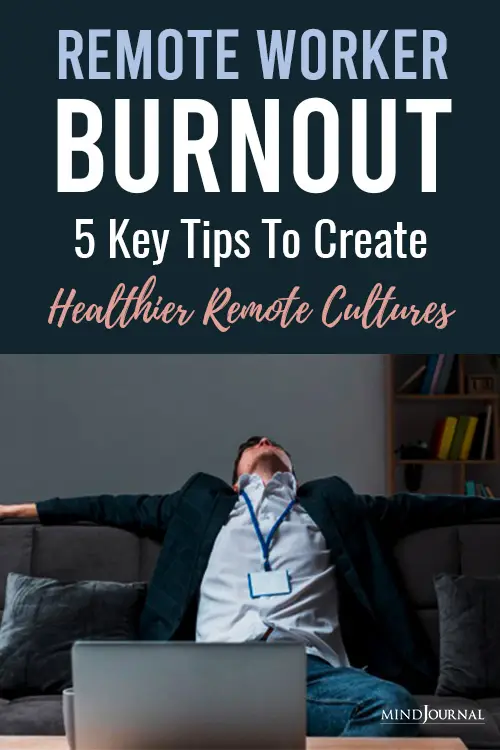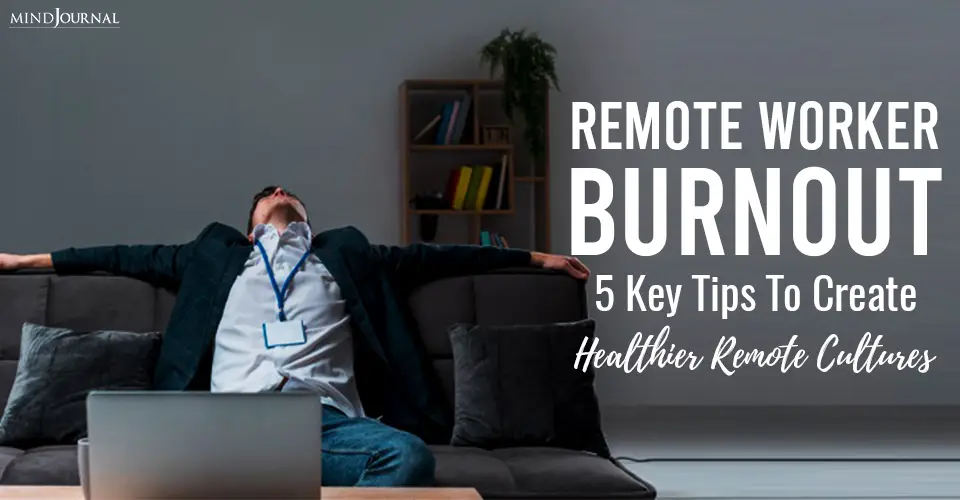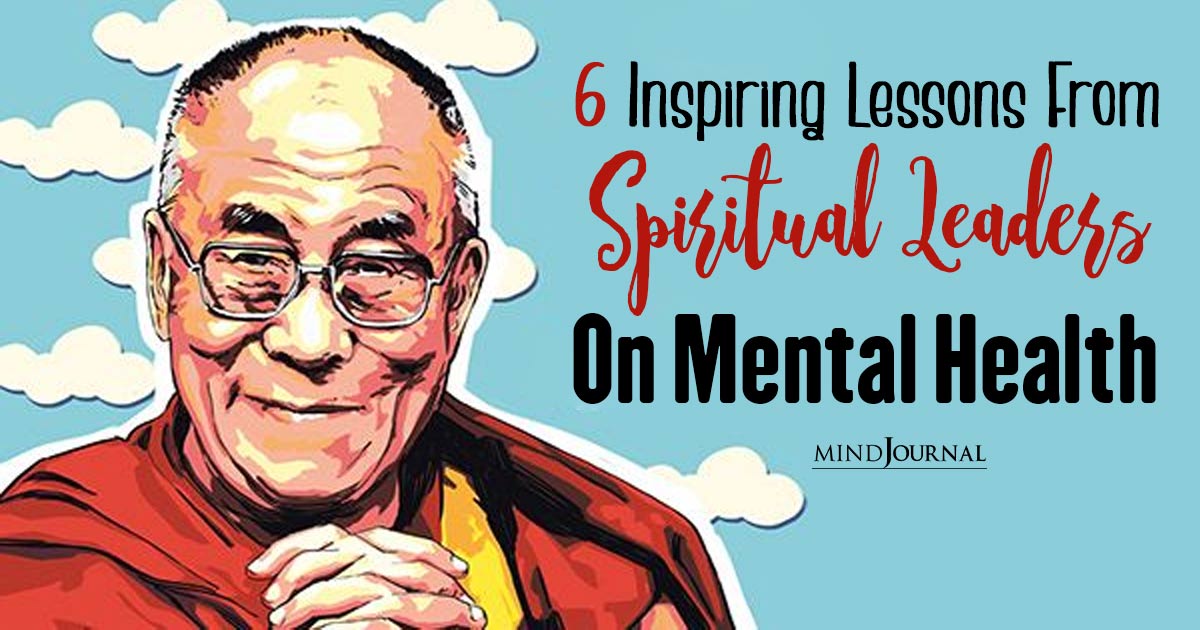Remote worker burnout has unfortunately become a reality these days, with almost every other person going through this. Too much work pressure and work stress are severely affecting people’s mental health, ultimately resulting in the remote worker burnout phenomenon.
Burnout is nothing to hide or be ashamed of. It’s a topic to be aware of and talk openly about so you know the signs and can prevent it. You’re not alone. And studies continue to reveal that a huge portion of the remote workforce is suffering from this medical condition.
Burnout is more serious than everyday job stress. The World Health Organization defines burnout as a syndrome resulting from chronic workplace stress that’s characterized by feelings of exhaustion or energy depletion, negative or cynical feelings related to a job, and reduced professional efficacy.
You can’t cure burnout by taking an extended vacation, slowing down, or working fewer hours. Once it takes hold, you’re out of gas, more than mere fatigue. The solution is prevention: good self-care and work-life balance to stop burnout in its tracks before it hits home in the first place. As Americans continue to work from home, new research shows that the risk of burnout is on the rise.
New Polls on Remote Work Burnout
According to a July 2020 survey of 1,500 respondents by FlexJobs and Mental Health America (MHA), 75 percent of people have experienced burnout at work, with 40 percent saying they’ve experienced burnout during the pandemic specifically. Thirty-seven percent are currently working longer hours than usual since the pandemic started. Having flexibility in their workday (56 percent) was overwhelmingly listed as the top way their workplace could offer support, well in front of encouraging time off and offering mental health days (43 percent).
Other highlights include:
- Employed workers are more than three times as likely to report poor mental health now vs. before the pandemic (5 percent vs. 18 percent).
- Forty-two percent of those employed and 47 percent of those unemployed say their stress levels are currently high or very high.
- Seventy-six percent agreed that workplace stress affects their mental health (i.e., depression or anxiety).
- Fifty-one percent of workers agreed that they had the emotional support they need at work to help manage their stress.
- Respondents were eager to attend virtual mental health solutions offered through their workplaces, such as meditation sessions (45 percent), desktop yoga (32 percent), and virtual workout classes (37 percent).
A second new survey conducted by OnePoll on behalf of CBDistillery asked 2,000 Americans working from home about the changes in their routines and how they’ve been holding up during the COVID-19 outbreak.
Related: Burnout: 6 Signs You’re Ready To Hit The Wall
Their findings showed that:
- Sixty-seven percent of those working remotely feel pressured to be available at all hours of the day.
- Sixty-five percent admitting to working longer hours than ever before.
- Six in 10 respondents fear that their job would be at risk if they didn’t go above and beyond by working overtime.
- Sixty-three percent agree that time off is generally discouraged by their employer.
More than half of those surveyed are feeling more stressed than ever before, and over three-quarters of respondents wish their company offered more resources to cope with the added stress of the pandemic.
Burnout Prevention for Remote Workers
To help remote workers avoid burnout, FlexJobs compiled five key tips to consider to create healthier remote cultures that promote workplace wellness.
1. Develop boundaries.
One of the difficult things about being a remote worker is that you’re never really “away” from your work physically, and you need to develop actual barriers between your work and personal life.
One boundary is to have a dedicated workspace that you can join and leave. Or, put your laptop in a drawer or closet when you’re done with work. Start and end your workday with some kind of ritual that signals to your brain when it’s time to change from work to personal or vice versa.
2. Turn off email and work notifications after work hours.
Turning off your email when you’re not “at work” is important—you shouldn’t be available all the time. Let your teammates and manager know when they can expect you. Let people know your general schedule and when you’re “off the clock,” so they aren’t left wondering.
Related: 3 Radical Acts of Self Care That will Help You Heal After Burnout
3. Encourage more personal activities by scheduling them.
Most people struggle with the “work” part of work-life balance. Schedule personal activities and have several go-to hobbies that you enjoy so you’ll have something specific to do with your personal time. If you don’t have anything planned, like a hike after work or a puzzle project, you may find it easier to slip back to work unnecessarily.
4. Ask for flexible scheduling.
Ask your boss for flexible scheduling so you can better control your days and balance both your personal and professional responsibilities.
5. Focus on work during your work time.
Don’t let “life” things creep into your work hours too much. If you’re productive and efficient throughout the day, at the end of the day, it will be easier to walk away feeling accomplished and not be tempted to work into the night to finish what should have been completed during the day.
6. Take a mental health screen.
If your stress feels unmanageable, or you have other mental health concerns, take a free, confidential, and anonymous mental health screen. Online screening is one of the quickest and easiest ways to determine whether you’re experiencing symptoms of a mental health condition.
Related: How To Recover From Burnout When You Feel Unmotivated
Recommendations for Company Leaders
In Flexjob’s study, only 21 percent said they were able to have open, productive conversations with HR about solutions to their burnout. And 56 percent went so far as to say that their HR departments did not encourage conversations about burnout.
“One of the most important things remote workers can do is to set clear boundaries between their work time and non-work time, and HR needs to take an active role in helping workers practice healthy boundaries between their professional and personal lives,” said Carol Cochran, VP of People and Culture at FlexJobs.
“Offering flexible scheduling to employees can have a dramatic impact on reducing burnout, since rigid work schedules usually magnify conflict between work and family, leading workers to mental exhaustion. Most importantly, leaders should strive to create a healthy company culture that values the individual as a person, and prioritizes the overall wellness of its workers,” Cochran advised.
This sentiment was echoed by Paul Gionfriddo, President, and CEO at MHA: “Company leadership, including executives, HR, and management, have a responsibility to their employees to model and talk openly about behaviors that reduce stress, prevent burnout, and help employees establish the appropriate boundaries when working remotely,” Gionfriddo said.
“Offering flexibility during the workday, encouraging employees to use their PTO when they need a vacation, and providing time off for employees to tend to their mental health can help employees at all levels of a company cope with COVID-19 and other stressors.”
Written By Bryan E. Robinson Originally Appeared In Psychology Today
Yes, work is important, and having a steady, stable career is also important, but never at the cost of your mental health. Remote worker burnout is a serious thing that should be taken seriously, otherwise, your mental health will end up being decimated. By all means, take your work seriously, but give yourself a break at times, and focus on your mental health and peace of mind.









Leave a Reply
You must be logged in to post a comment.